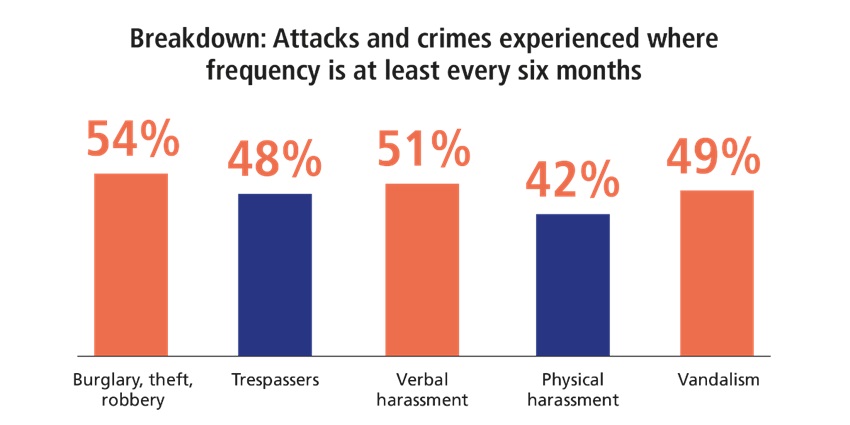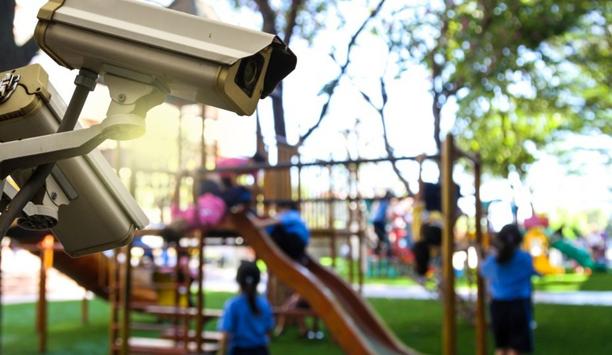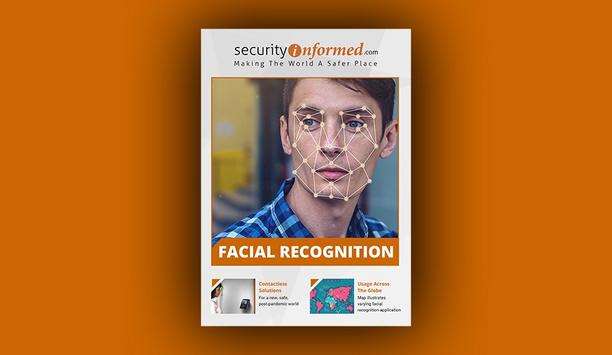Amid escalating security concerns for places of worship in the UK, the Home Office has launched two pivotal schemes to enhance protective measures.
The Places of Worship Protective Security Funding Scheme and the Protective Security for Mosque Schemes aim to combat hate crimes and ensure safety during religious gatherings by funding physical measures such as CCTV, fencing, and alarms.
Complexities of security solutions
Aware of this disquieting matter, Jacksons Fencing, a security specialist based in the UK, commissioned a white paper study to address the complexities of designing security solutions for places of worship amidst rising hate crime offenses.
With over 145,000 crimes reported in England and Wales alone in 2023, rising from over 41,000 in 2013, the research aims to uncover the unique challenges and propose strategies to enhance the protection against criminal activities.
Study findings
The findings underscore the critical need for improved security measures in religious spaces
Findings from Jacksons Fencing’s recent study are alarming: 59% of respondents have been subjected to a hate crime or attack.
Additionally, other findings underscore the disturbing regularity of these incidents: 74% indicate that their religious institution is targeted by a crime annually, with 62% experiencing attacks occurring at least twice a year. These findings underscore the critical need for improved security measures in religious spaces.
Identifying the most pressing threats
While larger criminal organizations often dominate discussions on crime, our research emphasizes the significant impact of individual perpetrators. Vandalism emerges as the most concerning criminal act (29%), followed closely by theft crimes (32%), often involving burglaries targeting donation boxes for monetary gain.
Moreover, verbal assaults or harassment make up nearly a quarter of reported offenses (24%), trespassing (23%), and physical assaults (18%) are disturbingly common occurrences.

A call for collaborative action
Our findings enabled us to analyze crime statistics within specific religious communities and compare them across all places of worship in the UK. Churches face a higher prevalence of vandalism (75%) and burglary (30%). Theft stands out as the primary concern in Islamic institutions, constituting 45% of all mosque-related incidents.
However, Muslims face a higher incidence of verbal attacks (40%), more than double the proportion experienced by Christians (21%). Trespassing poses the main challenge for temples (49%) and gurdwaras (50%). Hinduism also contends with robbery issues (46%), while Sikhs encounter a significant amount of verbal harassment (50%).
Refuges of security
A quarter of respondents noted discernible improvements in security measures during their visits
Despite the escalating instances of criminal activity targeting places of worship (as reported by 81% of respondents witnessing either a static or increased crime rate over the past five years), there is a prevailing sentiment among 44% that safety measures have undergone enhancements. In line with the research, a quarter of respondents noted discernible improvements in security measures during their visits to places of worship, with 38% acknowledging tighter controls over access to premises and grounds.
The Government’s allocation of £28 million for religious buildings and places of worship, with a significant portion earmarked for the most affected communities, particularly the Muslim community, is a step in the right direction. Nonetheless, 15% of respondents express concerns that their place of worship has become less secure compared to five years ago.
Moving forward
Peter Jackson, Managing Director, of Jackson Fencing, emphasizes the importance of striking a balance between security and aesthetics, “The design of on-site security should deter trespassers and prevent crime, while also fostering a welcoming atmosphere and instilling a sense of calm. Achieving this delicate equilibrium is paramount."
He adds, "We anticipate that our findings and primary suggestions will be a step in the right direction for stakeholders in physical security to collaborate with religious communities toward a shared objective of safeguarding places of worship, which hold immense significance for numerous communities across the UK."




















